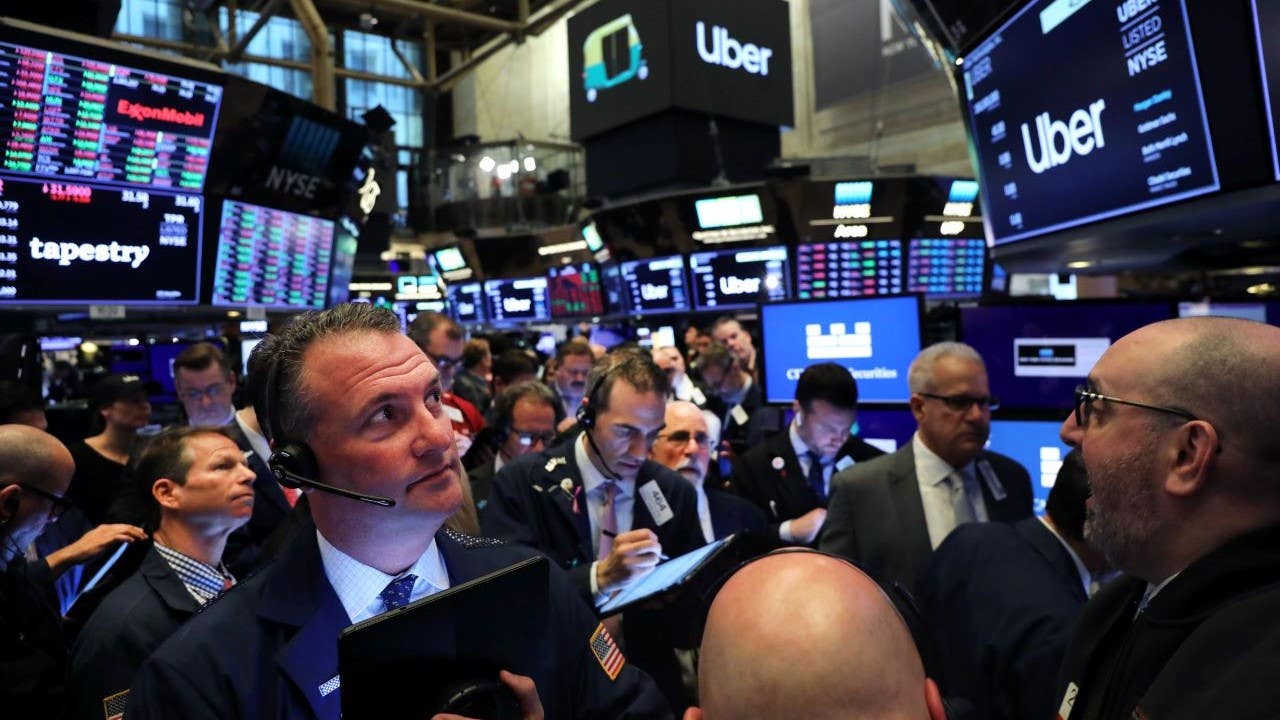How to buy IPO stock

Getting in on an initial public offering — more commonly called an IPO — seems like the ticket to riches. Buy a hot new stock and get in on the ground floor of a blockbuster company with the potential to become one of the best-performing stocks on the market.
Of course, despite their popularity, even IPOs are not a sure thing. For every fairy-tale stock that takes off like a rocket following its debut, plenty of IPOs, such as Lyft, post lackluster results and simply stagnate. Some — such as meal delivery service Blue Apron — even crash and burn.
Before rushing to invest a pocketful of cash, it’s important to know how to buy an IPO. Here’s how you can get in on the IPO action.
How to buy IPO stock
How do you buy IPO stock? First, understand the process: When a company goes public and issues stock, it wants to raise capital and make shares available to the public to purchase.
The IPO is underwritten by an investment bank, broker-dealer or a group of investment banks and broker-dealers. They purchase the shares from the company and then sell and distribute the shares at the IPO to investors. Until the IPO happens, the company remains private.
“The brokers find a home for the largest pieces. If there is a lot of interest, the shares go very easily into the hands of institutional investors,” says Rob Lutts, managing partner at Cabot Wealth Management in Salem, Massachusetts.
The goal of an IPO in the first place is to raise a certain amount of capital for the company to run its business, so selling a million shares to an institutional investor is much more efficient than finding 1,000 individuals to purchase the same amount.
But even big institutions often don’t get as much of the action as they would like, because the initial public offering sells only a limited number of shares.
“Especially with a smaller IPO, nobody really gets 100 percent of their fill. In fact, no one gets more than 10 percent of their interest in the allocation,” says Kathleen Shelton Smith, principal at Renaissance Capital, a global IPO and investment advisor.
Who gets to buy IPO stocks?
For most individual investors, that dream of getting in on the IPO action will never be realized. You can’t simply log in and buy them, even at the best online brokers for stock trading. Instead, it’s the big institutional investors who typically get access.
Institutions that get to participate in the initial public offering often do a lot of business with the brokers underwriting the deal. That relationship puts them in prime position to access some shares in the IPO.
“It’s stacked in favor of large asset managers, but it’s a money game and everyone is in it to make a buck and that is where [the stock] goes — it goes to the best customers of those brokers,” Lutts says.
The reality is your broker perceives individual investors as unattractive targets for IPOs. Instead, management, employees, friends and families of the company going public may be offered the chance to buy shares at the IPO price in addition to investment banks, hedge funds and institutions. High-net-worth clients may be rewarded with IPO shares from time to time as well.
If you have an account with the broker bringing the company public and happen to keep most of your vast fortune with that broker, you may be able to beg your way into a hot IPO.
“That still doesn’t mean you’re going to get in. For LinkedIn’s [IPO], for instance, unless you were friends or family, you were probably out of luck,” says Jeremy Carpenter, former portfolio analyst with Investor Solutions in Miami.
Lutts agrees, “I manage $500 million, and I can’t get the really hot ones.”
How long before an IPO stock can be sold?
One of the biggest attractions of buying IPO stock is the enormous potential for profit — often on day one. When shares of LinkedIn were first publicly offered, prices rose 109 percent from $45 to $94.25 on the same day.
In general, it’s likely your IPO stock is held in an online brokerage account and can be sold at nearly any time, either online or with a phone call. You can also typically place a limit order and set the price and number of shares you want to sell.
However, profit from shares held for less than one year from the date of purchase are taxed as ordinary income, which is often higher than the long-term capital gains rate. And of course, even if you do hold shares longer, you’ll still be liable for taxes on any gains.
Finding an IPO and getting in
Once the stock is trading on the exchange, small-fry investors and big-time professionals have plenty of opportunities to buy shares. In fact, waiting for a stock’s actual debut can be a smaller investor’s best strategy when it comes to new public companies.
As soon as the underwriting bank sets the price and it starts trading on the exchange, individuals can start buying IPO stock.
But if they want to get in on the action, would-be IPO investors have at least three other alternatives without having to be well-connected:
Invest in a mutual fund
Consider investing in one of a handful of mutual funds that invest in IPOs, such as Renaissance Capital’s IPO ETF (IPO).
“We’re really looking at investing in these companies that are not well-known yet by the market and that have an ability to get us gains very early in the price discovery [process],” says Shelton Smith.
Look for brokers that offer IPO access
Given how hot IPOs are, many investing companies are looking to get investors access to them. Retail brokerage Robinhood offers new shares to its clients as part of its IPO Access program.
Robinhood’s program is interesting, but you’re likely to get only a handful of shares, if you get any at all. The program is likely to prove popular with Robinhood’s clients, at least in theory, but the real question is how effective can it be at getting new shares to its clients.
Open an account at a thrift bank
A third alternative is to open a deposit account at a mutually owned thrift bank and wait for the bank to conduct its IPO. Depositors at these small banks can get access to the IPO, and many of the stocks enjoy a solid pop on their first trading day. The downside is that the thrift may wait years before it conducts an IPO, and it’s under no obligation to do so.
The following site provides a full list of mutually owned thrifts that may go public in the future.
Risks of buying an IPO
Smaller investors still need to weigh the pros and cons before buying an IPO. As the time-honored adage goes, buyer beware. IPO purchases are not without risk, which can be significant at times.
Here are the biggest risks of an IPO:
- After a first-day pop, the stock may fall. While the first-day pops of many IPOs are legendary, that doesn’t mean that the future works out as merrily. Consider that some of the highest-flying IPOs of recent times have lost their luster with Wall Street investors after an initial honeymoon.
- Even white-hot IPOs can fall — there are no guarantees. Twitter, Spotify, Uber, Lyft and even Meta Platforms (formerly known as Facebook) all fell substantially after their stocks debuted, and of this group, only Meta and Spotify have managed to surpass their IPO price on a consistent basis.
- The discount offered at the initial public offering may not be that great. According to Shelton Smith, the IPO price should be, on average, a 13-15 percent discount from what might be the regular trading price once the stock is public. However, some truly hot IPOs return much better than that.
- IPOs require research and analysis. If you’re considering buying an IPO, you’ll need to research and evaluate the company’s business model. You’ll need to assess its future plans and want to see whether the company is consistently profitable or at least has a path to consistent profitability.
- Don’t assume that an IPO is profitable — or ever will be. Amazingly, many companies come to market without a clear plan to generate sustained profits.
- A limited operation history can make the company hard to evaluate. New IPOs often have limited histories and so it can be tough to assess and value them. This is particularly true when a company is in a nascent industry, as dotcom companies were in the 1990s, and AI, ride-sharing and electric vehicle companies are today.
- Dual share classes may privilege insiders. Some of the most popular tech stocks in the recent past use two (or more) share classes, to privilege insiders and severely limit the power of outside investors to influence the company. Typically, outsiders are offered a share class that does not have the same voting rights as the shares held by insiders, such as company founders, even if both share classes have the same economic rights. For example, insider stock may have 10 votes, compared to one vote for regular stock.
To get some insight into how the company works and how the stock is valued, investors can look at the massive registration document required by the Securities and Exchange Commission for all new securities.
Known as Form S-1, or the Registration Statement Under the Securities Exchange Act of 1933, the offering document must contain specific information for investors, including financial information, the business model, risk factors and information about the industry. This document can be found on the SEC’s website, and it is normally loaded with caveats and disclaimers.
If investors can wade through this prospectus, they can glean enough information about the new company to make a call about the valuation — is it worth buying at the price people are selling?
Buying an IPO stock: Step-by-step
Getting access to an IPO before it begins trading isn’t easy. Here’s what you’ll need to do if you hope to have a chance.
- Have an online account with a broker that offers IPO access. Brokers like Robinhood and SoFi Active Investing offer IPO trading, so you’ll need an account with them or another broker that offers similar access.
- Meet eligibility requirements. Just having an account isn’t enough. You’ll need to meet certain eligibility requirements that can vary from broker to broker. You may need to have a certain amount in assets with the broker or be considered an active trader.
- Request shares. Once you meet the eligibility requirements, you’ll need to request shares from the broker. But it’s far from guaranteed that you’ll get shares just because you request them. Brokers have a set number of shares available and you may not be able to get any of them.
- Place an order. The trade order is known as a conditional offer to buy, which won’t become active until the IPO is priced. You’ll have a chance to confirm or change your order after pricing has been set and before the window closes. You won’t be able to buy more shares than you requested and won’t pay a higher price than you indicated in your order.
Can you buy pre-IPO stocks?
While some places offer trading in shares of private companies, it’s generally not something that’s recommended for individual investors. Before a company moves ahead with an IPO, it is considered private and its investors are primarily institutions such as venture capital and private equity firms, or employees of the company.
Some platforms do offer shares of private companies by buying shares from the company’s employees. But liquidity in these shares is significantly less than that of public companies and the information available to investors is also meaningfully reduced.
IPOs vs. direct listings
On the surface, IPOs and direct listings do the same thing: allow companies to make shares available to the public. But underneath there are some key differences between the two methods. Here’s what makes each unique and the benefits of each approach.
IPO
- Companies rely heavily on intermediaries such as investment banks and brokers to shepherd them through the listing process.
- An IPO involves creating new shares to be sold to investors, increasing the total number of outstanding shares.
- A portion of the money raised through an IPO will go directly to intermediaries such as investment banks as a fee for the services provided.
Direct listing
- No new shares are created in a direct listing, but existing investors in the company agree to sell a portion of their shares to the public.
- Direct listings do not use intermediaries as part of the listing process, and therefore are usually able to avoid the large fees associated with an IPO.
- By avoiding intermediaries, direct listings save on fees but run the risk that the share sale falls flat due to a lack of support or guarantee.
Bottom line
Buying IPO stocks requires a lot of homework, and they can be risky. Even for those who are able to get in on the first-day pop, IPOs may not be a sure bet. So, most individual investors should consider newly public companies carefully. It’s wise to limit your position size on any individual stock to a few percent of your holdings.
Note: Bankrate’s Rachel Christian contributed to an update of this story.
Editorial Disclaimer: All investors are advised to conduct their own independent research into investment strategies before making an investment decision. In addition, investors are advised that past investment product performance is no guarantee of future price appreciation.
Why we ask for feedback Your feedback helps us improve our content and services. It takes less than a minute to complete.
Your responses are anonymous and will only be used for improving our website.
You may also like

How to sell a house by owner in Florida






